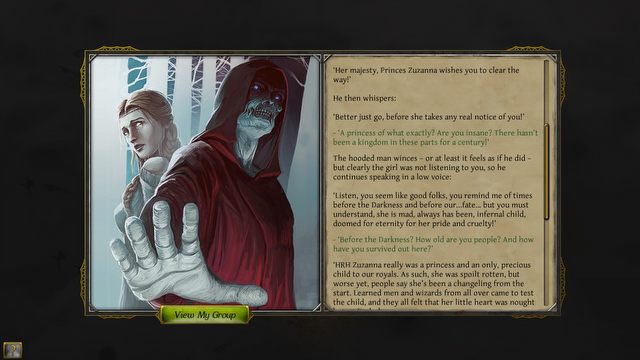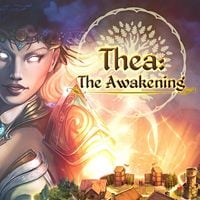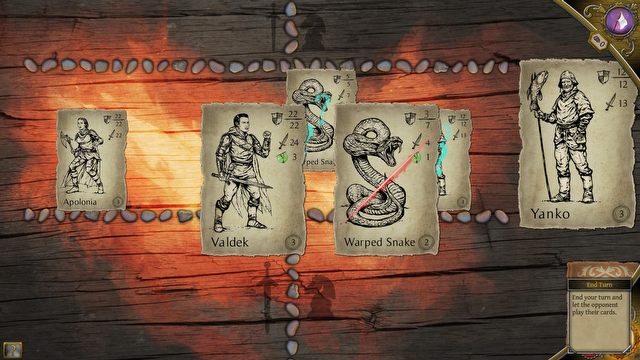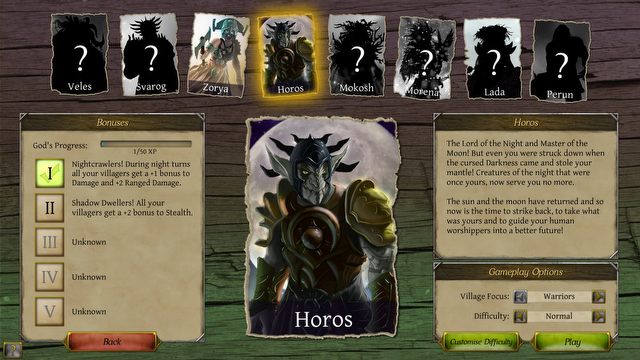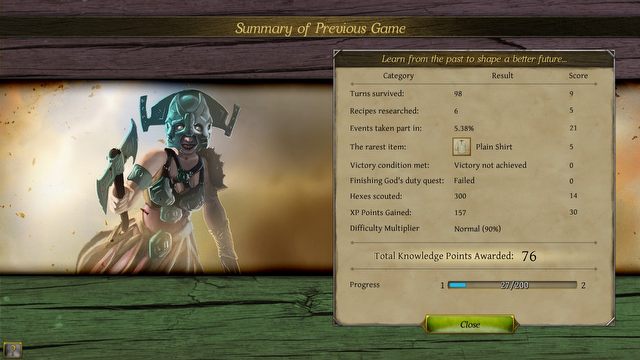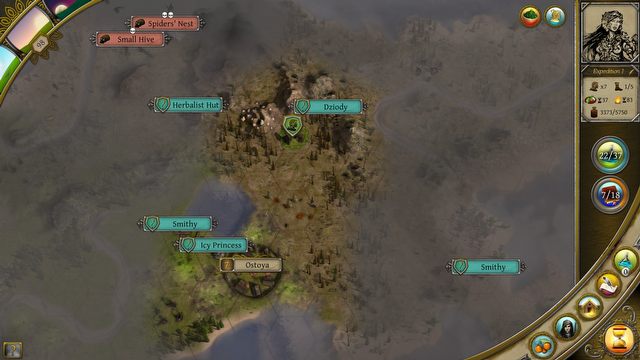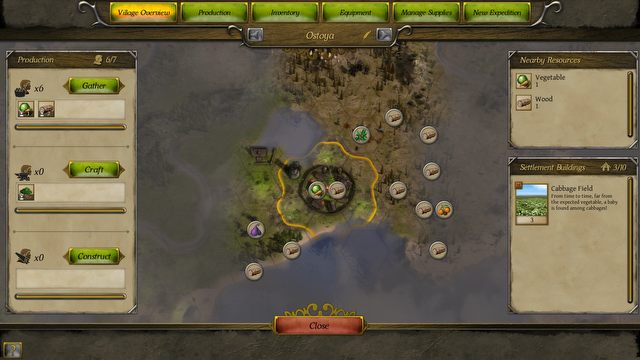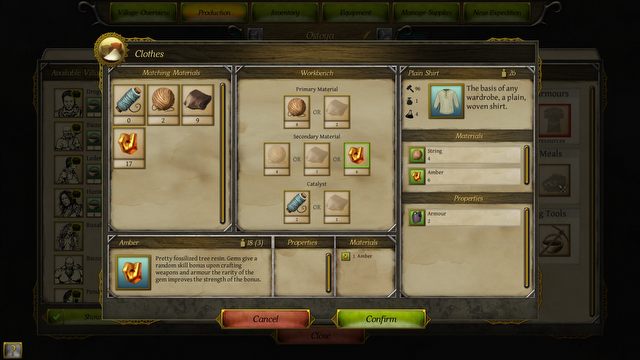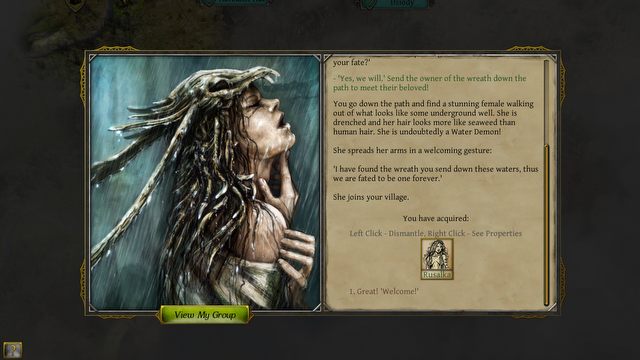Review of Thea: The Awakening – Civilization in a Slavic setting?
Slavic atmosphere and unusual mechanics that are difficult to assign to one genre – these are the most important aspects of Thea: The Awakening. The question is: are these interesting solutions complemented by good gameplay?
The review is based on the PC version.

- Slavic setting;
- Randomness does not outweigh the strategic aspect;
- Interesting concept of developing our village;
- A possibility to resolve conflicts in various ways;
- Very pleasing character and quest artwork;
- Atmospheric music...
- which quickly becomes boring;
- Inaccessibility;
- Many times we have to guess how various things work;
- Trite plot;
- Lackluster world map graphics;
Polish studio MuHa Games debuts on the market with a strategy production that is hard to pigeonhole. Thea: The Awakening proves two things: first, that such an original hybrid, which combines elements of development from 4X games, randomness known from roguelikes, and combat mechanics from card games, can actually hold together in a very interesting manner. Second, that the Slavic culture can serve as a really great inspiration for creating an entertainment product. Unfortunately, not everything in the game from Polish developers works as it should. If we assume that the first impression in games is as important as it is in life, Thea definitely seems like a stereotypically antisocial nerd who has no intention to connect with anyone. The first moments spent with this title prove to be a real ordeal and focus on an attempt to understand what exactly we should do. The ascetic graphics and a rather trite story told by dull speakers don't help us either. We have to be really patient to understand the mechanics of the game and start to have any fun with it.
It’s not Civilization
The key factor in the assessment of Thea is the answer to a question: what kind of game is it? Without a doubt it is not what it seems at first glance – that is the Slavic equivalent of Civilization. The graphical similarity to Sid Meier’s series is likely to mislead us, e.g. when we are tempted to make ineffective attempts at building a second town. In fact, we only have one village available. We can't freely recruit specific types of units either. Instead, we must wait until one day a child is born in our estate, who later becomes an adult and, following our decision, starts a life as a warrior, artisan or physician.
Thea doesn't have much in common with Civilization apart from a hexagonal map and enemy troops that roam the board aimlessly and bully our compatriots. This doesn't mean that development has been completely ignored here. The perspective is certainly different – instead of an entire nation, we manage a single village and its dozen inhabitants. We therefore focus on one place, and the changes that occur there throughout the game are less spectacular. The village remains a village (only functioning more efficiently with time); it doesn't evolve into a castle or a modern metropolis. This is because time works different here than it does in many other strategies – a single round doesn’t amount to one day or one year – it’s a time of day instead. There are 6 of them, and each lasts 3 turns, so it's easy to calculate that we have to complete 18 turns to have 24 hours pass in the game world.
This focus on a fragment of reality – in terms of time, our subjects, and space (most of the game we spend in the vicinity of our settlement; long journeys are rare) – certainly makes the game seem less impressive. This creates an interesting contrast with the primary objective we are given – saving the world. Besides, contrary to most 4X strategies where our attention is divided among many cities, armies and a large map, here we focus more on the details, which allows for more precise development strategy while providing equal amount of fun.
While we're on the topic of 4X games, it is worth noting that many people consider Thea a representative of this particular genre. I have to disagree. 4X stands for exploration, expansion, exploitation and extermination. As I've already mentioned, expansion is virtually nonexistent in the production from Muha Games. We begin the game with one village and this is how we finish. The element of extermination is dubious as well – yes, we wage battles against numerous monsters and bandits, but there are no distinctive nations that develop in the same way we do, or cities that we could take over. The gameplay therefore looks different than in typical representatives of the 4X genre.
It's not a card game
Thea features card game mechanics. They are used to resolve all kinds of conflicts and present an interesting alternative to the typical random system based on characters' coefficients. However, if you hope that the module implemented in the game is so complex that it could easily work as a separate production, you are in for a disappointment. The mechanics of clashes turn out to be simple – we get a hang of them after the first two or three fights. The question is: is it a bad thing? My answer is no, especially since this simple system offers numerous tactical possibilities, and you'll often be faced with a dilemma of what strategy to use.
What I could point out as a defect of the card game mechanics is the lack of variety of cards and no deck construction. The deck only contains cards representing our characters present in a given unit. There is therefore no possibility of assembling a deck with the use of other elements – such as some special cards that we could acquire during quests.
These mechanics also allow to settle conflicts different than physical combat. They determine whether we succeed in poisoning an enemy, win a verbal altercation or manage to pick up something heavy. This doesn't mean, however, that if our unit is adept at combat, it will also deal well with verbally persuading our enemies to perform various activities. All characters have a number of coefficients, and each of them is useful in different kinds of challenges. This system is difficult to grasp, especially at the beginning, and may cause some confusion. Over time, we start to understand which skills we must pay attention to and how to choose team members. However, this doesn't change the fact that the most important – especially on the easier difficulty levels – are still the battle skills, because most conflicts can be solved through combat. On the other hand, defeating opponents with a method different than spilling their guts can often result in more interesting prizes.
It's not a typical roguelike
Randomness in the production from MuHa Games is visible at every turn – from maps, distribution of resources and monsters' lairs to quests, events, and additional locations that we find, as well as the names of characters, their appearance, occupation and statistics. But there are some things that are constant – the course of the main quest doesn't change, and our village always looks the same, while its development is a result of the strategy we adopt. Despite the randomness, a lot depends on our style of play. On the one hand this is good, as it highlights the strategic aspect of the game, but on the other hand each new session is a little less surprising. This production is very far from typical representatives of the roguelike genre.
Yes, the game is more merciless than most contemporary productions, and rarely forgives our mistakes, but on the other hand it is not so severe as to end us in a few rounds. There are situations where bad decisions lead to almost all of our expedition members getting cut down, which is usually hard to make up for later, but in most cases errors result in death of one soldier. Of course, we are talking about the normal difficulty level – those who love a challenge also have something to look forward to in Thea.
The authors didn't go for total randomness and high level of difficulty, which I personally liked. Thus, it is still a game that we can complete many times, and when we lose, we feel that it's only our fault and not a coincidence resulting, e.g. from the fact that we didn't receive the required components at the beginning.
So what is Thea exactly?
We are dealing with a genre hybrid that could be described as a management game. We manage the village and expeditions while spending a lot of time with various windows – inventing recipes, managing the population, producing new items, or distributing food and fuel necessary for survival. Organizing expeditions is engaging as well, as we have to choose the right team, equipment and skills. Due to dwindling resources and dangers lurking on the map every trip we organize should have a specific purpose. There's a lot of planning involved – hence the association with the management genre.
If we consciously approach Thea without expecting a typical 4X, card game or roguelike, we surely won't be disappointed. This game provides quite a lot of fun and it is definitely worth it to get immersed in its world ??and give it time, because I won't deny that it requires a lot of patience. However, one cannot ignore the key disadvantages of the production from Muha Games. Its greatest sin lies in its inaccessibility – poor tutorial, little transparency of the rules, and a lot of aspects that have to be mastered by trial and error will simply put off a lot of people. It must be emphasized that it is definitely not a title for everyone. Those who enjoy slow yet strategic gameplay should feel at home in Thea while others might get tired before the game has a chance to reveal its true potential.
In technical terms, the game is very uneven – lack of graphical bells and whistles makes the map of the world seem dull, but great character artwork and graphics displayed during quests sometimes manage to catch our eye for a bit longer. Atmospheric soundtrack (at times bearing resemblance to the OST of Heroes of Might and Magic III) would definitely benefit this production, if it weren't for the fact that a poor number of tracks makes it rather repetitive. The first map loading takes a long time, and the interface is sometimes coarse. On the other hand, the entire game works quite smoothly, and our opponents’ turns are never too long. The story has a few twists and interesting solutions, but overall it is rather trite. The fact that many conflicts can be solved in different ways and with different effect is a nice touch, but it's difficult to overlook that many of them end up the same way regardless of the indicated dialogue options, or we aren’t given any choice at all.
Thanks to the original, Slavic climate and an interesting attempt to combine several genres, Thea deserves to be named an innovative game. I hope that the authors develop their concept, because even though I am aware that it will never be a game for everyone, after correcting several technical aspects and rethinking some of the solutions, it has a chance to fill a certain niche in the strategy genre.
Thea: The Awakening
Review of Thea: The Awakening – Civilization in a Slavic setting?
Slavic atmosphere and unusual mechanics that are difficult to assign to one genre – these are the most important aspects of Thea: The Awakening. The question is: are these interesting solutions complemented by good gameplay?

